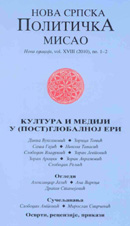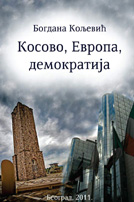| NSPM in English | |||
What the United States Can Learn From the Soviet War in Afghanistan |
 |
 |
 |
| понедељак, 14. децембар 2009. | |
|
(Foreign Affairs, December 10, 2009)
There are, of course, some fundamental differences between the Soviets’ war in the 1980s and the U.S.-led mission today. First, the Soviet Union intervened to save a communist regime which was in danger of collapsing due to resistance to its comprehensive and often traumatic social-engineering programs. Unlike the Soviets and their client regime, the United States is not interested in forcibly removing the burkas from Afghan women, shooting large numbers of mullahs for resisting secularization, or reprogramming the political and social mores of Afghans. Instead, Washington has a far more limited objective: namely, ensuring that Afghanistan remains an inhospitable base for extremist groups hoping to attack the West. Second, the Soviet army was prepared to fight a total war in Afghanistan, taking heavy losses in men and machinery and inflicting sweeping violence on the Afghan people. No U.S. commander would be willing to wage such a war today; the U.S. military realizes that making a desert and calling it peace is no way to curtail an insurgency. But the Soviet experience should not be entirely ignored. When Soviet troops pulled out of Afghanistan in February 1989, many in the United States expected to see the mujahideen quickly topple the pro-Moscow government in Kabul. This did not happen. The regime led by Mohammad Najibullah, whom Moscow installed as president in 1987, remained in control of the country. For a moment, it appeared as if the Kremlin had successfully left in power an Afghan government and army that could withstand the Soviet withdrawal. The Najibullah government was able to survive because Najibullah recognized the futility of the earlier Soviet strategy in Afghanistan. Afghans, he knew, would not fight and die for the Soviet Union. But, he realized, Afghans could be co-opted to work with the government to defend local and clan interests. Najibullah allowed regional leaders -- and, in some cases, former mujahideen commanders -- to form their own militias and, with mixed results, to join the regular army. The most successful of these was the Uzbek militia led by General Abdul Rashid Dostum, which formed the 53rd infantry division of the Afghan army. The departure of Soviet troops -- “the foreigners” -- weakened ties among various mujahideen factions. Najibullah’s government used long-standing rivalries, along with selective and generous bribery, to drive wedges between militant groups and then take advantage of the fighting that broke out as a result. At the same time, Najibullah received weaponry, food, and fuel from the Soviets, which gave his forces a significant advantage in terms of battlefield firepower and resources. The Afghan military flew the latest Soviet aircraft and had hundreds of Soviet-made Scud missiles in its arsenal. The government in Kabul also dropped many of the more radical social-engineering programs previously championed by the Afghan communist leadership. It moved away from Marxist ideology and embraced Islam as the state religion, making an effort to put many of the country’s mullahs on the government payroll. Finally, Najibullah constructed a nationwide patronage network to dispense the government largesse provided by the Soviet Union. In particular, he kept open the Salang Road -- a critical supply route linking Kabul with the country’s south -- by striking a series of deals with local villages and elders, who agreed to prevent mujahideen from mounting attacks on supply lines in exchange for a percentage of the goods flowing from the Soviet Union. In short, Najibullah relied on time-honored practices of Afghan statecraft. He resembled a communist version of Mohammad Nadir Shah, who had ruled the country after the overthrow of King Amanullah Khan in 1929. Both the shah and Najibullah pushed for quiet modernization rather than reform from above, placated local interests while using divide-and-rule techniques to break up the opposition, and focused on strengthening the state’s army and security services. The Najibullah regime demonstrated its resilience during the ill-advised mujahideen assault on the southern city of Jalalabad in March 1989. Although Pakistani and U.S. military advisers were convinced that much of the Afghan army would defect and the Najibullah government would quickly fold, the mujahideen overestimated their own strength and were forced to retreat. Inflated hopes of success meant the loss rocked the alliance of anti-Najibullah forces; meanwhile, morale inside the government skyrocketed, and Najibullah’s efforts to convince local leaders to back his rule began to bear greater fruit. By the summer of 1989, U.S. officials began to admit that Najibullah had been successful in finding partial accommodation with some elements of the resistance. Typical intelligence assessments no longer measured Najibullah’s survival in weeks or months. An August 1989 analysis on the “MacNeil/Lehrer News Newshour” concluded, “The prospect of an outright guerrilla victory in Afghanistan is now receding. Sooner or later, that may prompt a reassessment by the mujahideen and their Western backers.” The Soviets and their proxy regime in Kabul were hoping for a post-withdrawal settlement under which Pakistan and the United States would stop arming and financing the mujahideen. That did not happen. Some $500 million a year continued to flow to the mujahideen. (In 1991, the United States terminated its aid, while Pakistani and Saudi funding continued.) Most important, as Najibullah would soon learn, no government in Kabul is safe without Islamabad’s express agreement. As head of the Afghan secret police in the early 1980s, Najibullah sponsored attempts to subvert the Pakistani government and tried to foment a rebellion in the Pakistani province of Baluchistan. Although Pakistani officials had signaled that they might allow some members of the communist regime in an Afghan coalition government, they were completely opposed to Najibullah, a potentially threatening a figure, remaining in power. Afghanistan was to be run by Pakistan’s protégés, not clients of the Soviets. As mujahideen attacks continued to work away at Najibullah’s flanks, Pakistan’s intelligence services probed for weaknesses at the government’s core. They found a vulnerability at the heart of Najibullah’s rule: in March 1990, Defense Minister Shahnawaz Tanai tried to overthrow Najibullah in cooperation with Gulbuddin Hekmatyar, whom Pakistan preferred as the country’s leader. The coup failed -- but it spooked Najibullah, who began to distrust anyone outside of his immediate circle. Non-Pashtun figures such as Dostum began to fear that they were vulnerable and could be eliminated. Then, in December 1991, the Soviet Union collapsed, taking down with it the gravy train that had enabled Najibullah to buy loyalties across the country. A series of defections followed, most notably that of Dostum, who, in the spring of 1992, joined forces with Ahmed Shah Masoud in an effort to block a Hekmatyar victory. These shifts in allegiance -- not superior tactics or greater popular appeal of the mujahideen -- ultimately brought down Najibullah’s government. The initial stability of Najibullah’s government suggests that Afghans will assume responsibility for the fate of their government when the foreign footprint in their country has been sharply reduced -- but only if an outside patron is prepared to supply and equip Afghan forces. The central government in Kabul is strengthened when it sends gifts to the provinces rather than collecting taxes from them. But someone has to pay for this. The United Kingdom lavished resources on India in the nineteenth century; the Soviet Union sent billions of rubles to Afghanistan. Is Washington prepared to play such a role today? Najibullah’s fall from power is a reminder that the fate of the Kabul government is closely tied to what happens in Pakistan. (Najibullah remained in Afghanistan and was killed by the Taliban in 1996.) As much as he was able to compromise and negotiate with his adversaries, he ran up against an even stronger opponent in Pakistan, which offered sanctuary to his enemies and a great deal of funding, weaponry, and logistical support to groups that opposed his rule. The road to Kabul lies through Islamabad -- and these days even more through Peshawar, where the Pashtun insurgency has its base. The United States, then, must ask itself some hard questions. Is Afghan President Hamid Karzai another Babrak Karmal, who was the Soviet Union’s initial preference as Afghanistan’s leader but who was unable to build a self-supporting regime that permitted his foreign benefactors to go home? Recent statements from Karzai suggesting that Afghanistan will need another five years to take over security and another 15 years of U.S. assistance will not inspire much confidence among U.S. policymakers. It remains unclear whether the current Afghan government can find a Pashtun leader who enjoys enough credibility among the country’s non-Pashtuns in order to set up a durable central government. Karzai’s delay in naming a new cabinet is worrying. Although the Obama administration is hoping for the best, it needs to ask if it has its own Najibullah waiting in the wings. If so, now would be a good time for him to step forward. Nikolas K. Gvosdev is Professor of National Security Studies at the Naval War College. The views expressed herein are entirely his own. |
Од истог аутора
- Russia’s Foreign Policy: What’s Next?
- Turning Russia into a Euro-Atlantic Stakeholder
- Engaging the Southern Democracies
- Shaping the Multipolar World
- The Realist Prism: The Ukraine That Might Have Been
- The Realist Prism: Horse Trading with Beijing
- Resetting Russia
- Facing the Facts on Terror
- Reagan Plagiarized
- Moving NATO Forward
Остали чланци у рубрици
- Playing With Fire in Ukraine
- Kosovo as a res extra commercium and the alchemy of colonization
- The Balkans XX years after NATO aggression: the case of the Republic of Srpska – past, present and future
- Из архиве - Remarks Before the Foreign Affairs Committee of the European Parliament
- Dysfunction in the Balkans - Can the Post-Yugoslav Settlement Survive?
- Serbia’s latest would-be savior is a modernizer, a strongman - or both
- Why the Ukraine Crisis Is the West’s Fault
- The Ghosts of World War I Circle over Ukraine
- Nato's action plan in Ukraine is right out of Dr Strangelove
- Why Yanukovych Said No to Europe

.jpg)








 Could the Soviet Union have won its war in Afghanistan? Today, the victory of the anti-Soviet mujahideen seems preordained as part of the West’s ultimate triumph in the Cold War. To suggest that an alternative outcome was possible -- and that the United States has something to learn from the Soviet Union’s experience in Afghanistan -- may be controversial. But to avoid being similarly frustrated by the infamous “graveyard of empires,” U.S. military planners would be wise to study how the Soviet Union nearly emerged triumphant from its decade-long war.
Could the Soviet Union have won its war in Afghanistan? Today, the victory of the anti-Soviet mujahideen seems preordained as part of the West’s ultimate triumph in the Cold War. To suggest that an alternative outcome was possible -- and that the United States has something to learn from the Soviet Union’s experience in Afghanistan -- may be controversial. But to avoid being similarly frustrated by the infamous “graveyard of empires,” U.S. military planners would be wise to study how the Soviet Union nearly emerged triumphant from its decade-long war.













